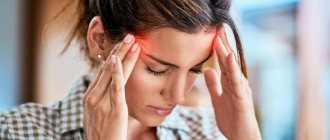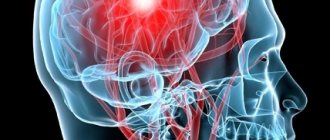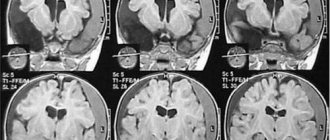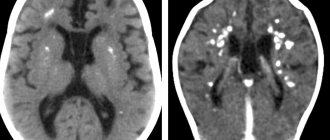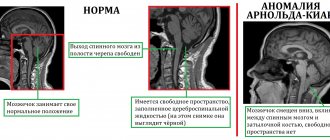The information on this website is not intended to replace personal contact with a qualified health care professional and is not intended to be used as medical advice. Please read our full medical disclaimer.
Exploding head syndrome is a type of parasomnia. Parasomnia is associated with adverse events that accompany sleep. Exploding head syndrome may seem painful and even scary, but it is not. This is a disorder in which a person hears a loud noise right before going to sleep. The noise the patient hears is imaginary. Patients describe the noise as being akin to a loud explosion. This loud bang appears to have originated in the patient's head. While this often happens when a person is about to fall asleep, it can also happen when a person wakes up in the middle of the night.
What do people with EHS hear?
Some patients describe the sound they hear as being like the sound of cymbals hitting. There are also those who compare the sound of an exploding bomb. Sometimes the sound is not as loud and less disturbing. There are times when a sound is accompanied by a flash of light. Some patients experience twitching along with a loud sound. An EHS episode is often painless. However, there are some patients who have reported feeling sudden painful blows to the head during an attack.
The intensity of the sound makes some patients think they are having a stroke. Episodes of exploding head syndrome may vary in frequency. This may happen very rarely. There are also cases where the patient experiences several episodes in just one night. Some patients experience multiple attacks over several nights. Several weeks or months may follow without a single episode before episodes of EHS occur again.
What do you need to know about diagnostics?
A neurologist can identify this syndrome, and a somnologist can also deal with a similar problem. The latter specializes in sleep problems. In order to suspect the presence of such an illness, it is necessary to interview the patient. The specialist should ask questions about the patient's sleep patterns.
There is such a procedure as polysomnography, it is needed in order to study the activity of the brain, breathing, and heart function during the night. Such a test allows you to detect problems in the excitation of certain parts of the nervous system and study abnormalities in the functioning of the heart and lungs. If organic diseases of the central nervous system are detected, the diagnosis is made using neuroimaging. Suspecting organic brain damage, specialists resort to computed tomography and magnetic resonance imaging. In milder cases, Doppler sonography of the veins and arteries of the brain is performed.
What are the symptoms of exploding head syndrome?
A person may have exploding head syndrome if they:
- Imagines a loud noise or explosion in the head. The patient may hear the noise before falling asleep. Some patients hear this immediately after waking up in the middle of the night.
- The loud explosion that the patient hears does not cause pain. Although the sound of the explosion is really loud, it does not cause any harm. However, the sound associated with EHS can be quite startling.
- An EHS episode suddenly awakens the patient. The patient also often experiences a feeling of fear along with any of the above episodes.
In addition to the symptoms listed above, an episode of exploding head syndrome can also cause:
- Increased heart rate as a result of being startled by a loud plosive sound.
- Feelings of anxiety or fear. People often associate loud explosive sounds with danger. This may explain why a patient may exhibit feelings of fear upon hearing a loud explosion sound caused by EHS.
- Muscle twitching
Causes of the disorder
So far, no clear cause of the disease has been identified. Medical experts only identify a number of factors that contribute to the problem. These include the following points:
- A person has epileptic activity.
- Discontinuation of medications such as antidepressants, benzodiazepines.
- Serious disorders of the middle ear structure.
- State of depression, emotional depression. This also includes chronic stress and anxiety.
- Sleep disorders.
- The presence of mental illness is also a factor that can serve as a basis for outbreaks in the head.
- Systematic use of drugs and alcohol.
- Serious physical activity.
- Malfunctions of the nervous system.
- This disorder also appears if a person does not sleep for a long time. This refers to lack of sleep or lack of sleep at all.
- Chronic diseases of internal organs.
Such an illness may manifest itself against the background of any psychological problems that are related to work or personal life. Since the nature of the disease is still not fully understood, the cause of its appearance in each specific case may differ. That is why a specialist must fully examine the patient. The condition of the body is carefully checked, and auxiliary methods can be used.
What Causes Exploding Head Syndrome?
Researchers have not yet determined the exact cause of exploding head syndrome. Some researchers believe this is a neurological issue. Some doctors believe that this disorder is a result of fear, stress and anxiety. Another possible source of this disorder is minor seizures in the patient's temporal lobe. Some believe that loud explosions are the result of parts of the patient's middle ear suddenly shifting.
There is also the possibility that the loud noise the patient hears is not the result of exploding head syndrome. This could be the result of another disorder or health condition. There is a possibility that the loud bang that the patient hears is a side effect of the medication he is taking. It can also be the result of drug or alcohol abuse. Also, the possibility that this disorder is a consequence of another sleep disorder cannot be discounted.
There is no reliable data indicating how many people suffer from exploding head syndrome. This parasomnia is more common in women than in men. There is no indication that it is more common in a particular age group. Exploding head syndrome can begin at any age . There are reports that it can appear in children as young as 10 years of age. The average age when it first appears in patients is 58 years.
Relapse Prevention
Recommendations for preventing recurrences of nighttime explosions in the head are quite simple and applicable to many sleep disorders:
- Normalize sleep patterns . Normally, sleep duration should be at least 6-8 hours.
- Reducing tension and stress levels . If it is impossible to eliminate these factors from everyday life, it is necessary to master techniques and methods of dealing with stress and relaxation. These methods include auto-training and yoga.
- Normalization of diet . It is not recommended to eat heavy foods before going to bed. Also during this period you should not drink strong tea, coffee, energy drinks, or eat sweet, salty or spicy foods.
- Active lifestyle and sports . Walking in the fresh air, cycling, fitness, and swimming will help normalize sleep.
- To refuse from bad habits . Drinking alcohol and smoking negatively affect the quality of sleep.
How is this disorder diagnosed?
A careful review of a patient's medical history can help determine whether he or she actually suffers from exploding head syndrome. This may also rule out the possibility that symptoms, even if they indicate EHS, are related to another sleep disorder.
Before visiting a doctor for a consultation, the patient can keep a sleep diary. A sleep diary can help chart a patient's sleep patterns. It can also help the doctor determine whether part of the patient's sleep pattern is causing the problem. When making entries in a sleep diary, it is important for the patient to be as detailed as possible. This may help your doctor make a diagnosis.
There are no tests for exploding head syndrome. Your doctor may recommend an overnight sleep study or polysomnogram. During a sleep study, a doctor or medical technician watches the patient while he or she sleeps. A polysomnogram uses other diagnostic tools that can monitor a patient's heart rate, breathing rate, and brain waves during sleep. There are also sleep studies, where the doctor uses a video camera to record the patient's movements while they sleep. A sleep study can help a doctor determine if another sleep disorder is causing the loud explosions a patient hears.
Read also
Snoring and obstructive sleep apnea syndrome
Snoring is a rhythmic vibration of the soft tissues of the pharynx in the flow of inhaled and exhaled air.
Snoring occurs against the background of a decrease in the tone of the pharyngeal muscles during sleep and the transition of breathing to the night “automatic”... Read more
Sleep disorders
Somnology studies sleep and its disorders, treatments for sleep problems and the overall effect of sleep on health. As a branch of neurobiology, sleep medicine is responsible for accumulating information about treatment options...
More details
Bruxism
BRUXISM is a sleep disorder characterized by periodic contractions of the masticatory muscles during sleep, which leads to jaw clenching and teeth grinding. The disease can occur both in childhood and…
More details
Excessive daytime sleepiness (hypersomia)
EXCESSIVE DAYWAY SLEEPiness (HYPERSOMNIA) is a condition in which a person is unable to maintain a sufficient level of active wakefulness during the day. The consequence is attacks of uncontrollable need...
More details
Meniere's disease
Meniere's disease is a disease in which the leading symptoms are systemic dizziness, accompanied by hearing loss, a feeling of fullness and tinnitus. Paroxysmal dizziness,…
More details
How is exploding head syndrome treated?
There are several treatments for exploding head syndrome. These treatments are more focused on eliminating the possible cause of the loud noises. An example would be patients who experience symptoms of EHS during sleep deprivation. If this is the case, then the right course of action is to try to get enough sleep every night. The ideal sleep duration for an adult is 6 to 8 hours.
There are times when exploding head syndrome is a result of stress or anxiety. In this case, the patient should try other means of relaxation. Relaxation techniques can help relieve stress. There are also daily activities that can help relieve stress. Examples: short walks, light exercise, or reading before bed. Taking a warm bath before bed can also help relieve EHS symptoms.
Medications may also help relieve symptoms of EHS. The patient may benefit from medications that affect neurological activity. Clomipramine, an antidepressant, is useful in relieving symptoms of EHS.
Anticonvulsants and tricyclic antidepressants may help the patient. There are also indications that using calcium blockers may help relieve the symptoms of EHS. If a patient believes that medication may help prevent an attack, the physician and patient should carefully discuss possible treatment.
There are cases where the disorder is a result of taking another medication. When EHS is the result of another health problem, the patient should not immediately stop taking the prescribed medications. There are medications with side effects. If a patient needs to stop taking a particular medication, they should gradually stop taking the medication. It is also important to consult with your doctor before stopping the drug. A doctor can help create a plan that will allow a patient to gradually reduce the dosage and frequency of a particular medication.
Exploding head syndrome is a parasomnia associated with the patient's hearing. Only the patient hears the loud noise. This can lead to lack of sleep. The person may be anxious to go back to sleep out of fear of another loud explosion. This can lead to lack of sleep. Depending on what causes exploding head syndrome, there are many treatments available.
Health care
Exploding head syndrome is a fairly new phenomenon in medicine and there is no single accepted treatment regimen.
Drug therapy can be used to treat the syndrome. Patients are often prescribed the following medications:
- homeopathic and herbal medicines;
- antihypoxants;
- sleeping pills;
- tricyclic antidepressants.
If the syndrome causes other sleep disorders (for example, insomnia), then calcium antagonists are prescribed. In some cases, calcium channel blockers can lead to complete cessation of attacks of the syndrome, but most likely a decrease in the frequency of attacks.
In the treatment of this sleep disorder, it is possible to use physiotherapy methods: acupuncture, massage, electrosleep.
